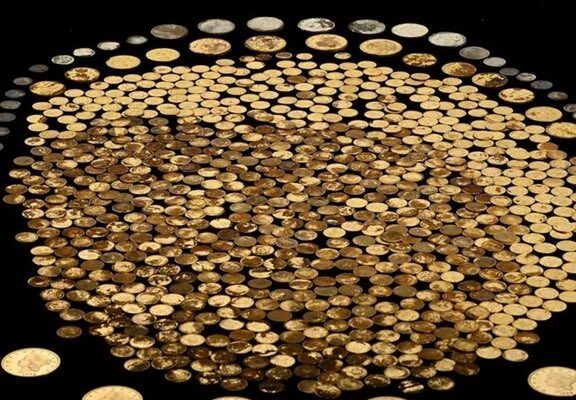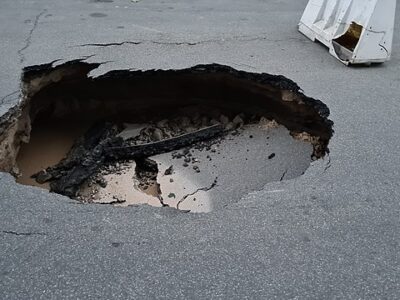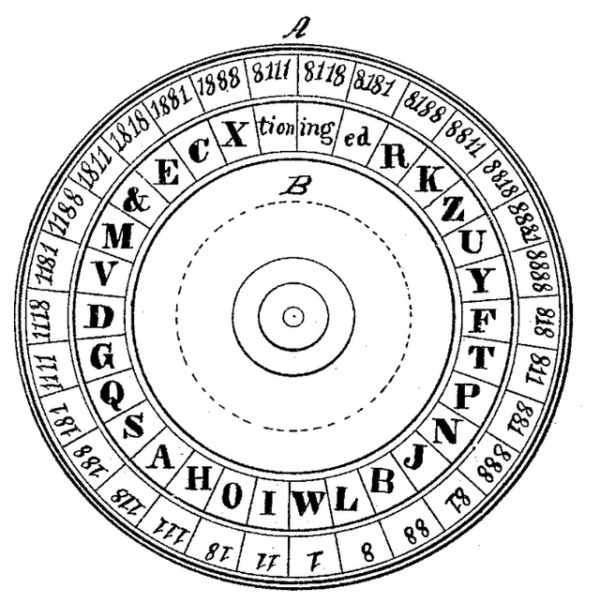
A man in Kentucky was digging in his cornfield when he felt something hard hit his shovel. Likely expecting to see a stone, when he got a closer look he needed to sit down for a second. It looked like he had found treasure, gold coins to be exact. After wiping a couple off, he realized he’d discovered over 800 coins from the Civil War that had been buried for safekeeping.
His find has been dubbed the “Great Kentucky Hoard,” and it includes hundreds of U.S. gold pieces dating to between 1840 and 1863, in addition to a handful of silver coins.
In a short video, the man who discovered the hoard — whose identity and specific location have not been revealed to the public — says, “This is the most insane thing ever: Those are all $1 gold coins, $20 gold coins, $10 gold coins,” as he aims his camera at the artifacts tumbling out of the dirt, writes Yahoo.
According to the Numismatic Guaranty Co. (NGC), which certified the coins’ authenticity, and GovMint, where the coins were sold, 95% of the hoard is composed of gold dollars, along with 20 $10 Liberty coins and eight $20 Liberty coins. The rarest is the 1863-P $20 1-ounce gold Liberty coin. Just one of these coins can go for six figures at auction, and the Great Kentucky Hoard boasts 18 of them. NGC’s website notes that the $20 Liberty coin, which circulated from 1850 to 1907, was minted by the Treasury Department after gold was discovered in California. The $20 Liberty coins in the hoard are even rarer because they do not include “In God We Trust,” which was added in 1866 after the end of the Civil War.
Ryan McNutt, a conflict archaeologist at Georgia Southern University who has heard about but not seen the hoard, told Live Science in an email that “given the time period and the location in Kentucky, which was neutral at the time, it is entirely possible this was buried in advance of Confederate John Hunt Morgan’s June to July 1863 raid.”
Many wealthy Kentuckians are rumored to have buried huge sums of money to prevent it from being stolen by the Confederacy. James Langstaff left a letter saying he had buried $20,000 in coins on his property in Paducah, William Pettit buried $80,000 worth of gold coins near Lexington, and Confederate soldiers quarantined for measles reportedly stole payroll and hid it in a cave in Cumberland Gap. None of these caches has ever been recovered.
Locally, Jeff Garrett, the founder of Mid-American Rare Coin Galleries in Lexington, told The Lexington Herald-Leader that the discovery was difficult for him to wrap his mind around.
“The opportunity to handle the Great Kentucky Hoard is one of the highlights of my career,” Garrett told NGC, the company that graded the coins. “The importance of this discovery cannot be overstated, as the stunning number of over 700 gold dollars represents a virtual time capsule of Civil War-era coinage.” The coins have been certified, cleaned and are now displayed with “eye-popping luster.”
“Although Kentucky remained neutral during the conflict,” explains Live Science, “many wealthy residents of the state were believed to have buried large sums of money to prevent it from being stolen by the Confederacy. Given the time period and general location, it’s very possible that the coins were buried due to Confederate John Hunt Morgan’s raid on Indiana from June through July in 1863, which began in Tennessee but also swept through Kentucky.”









